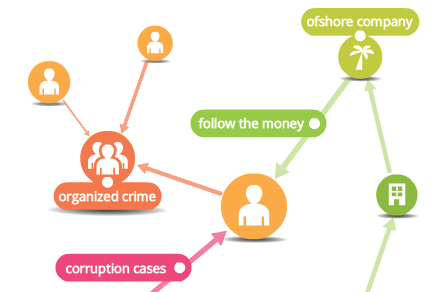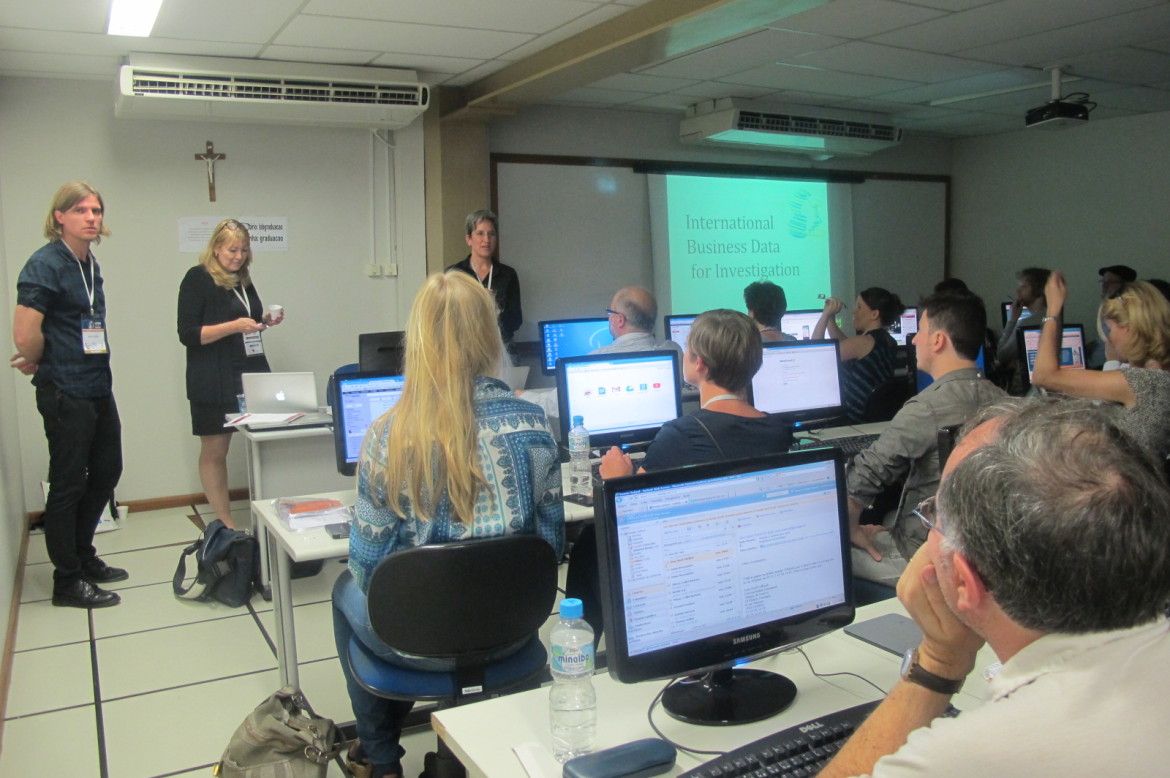

Research Tools for International Business Investigations
 Investigative stories are just a click away. But to find them, you need to look in the right place. Marty Steffens, from the University of Missouri, and Paul Radu, from the Organized Crime and Corruption Reporting Project in Romania, presented some of the best search tools on the Internet other than Google at the Global Investigative Journalism Conference. They are often used as the starting point for almost all research on international business.
Investigative stories are just a click away. But to find them, you need to look in the right place. Marty Steffens, from the University of Missouri, and Paul Radu, from the Organized Crime and Corruption Reporting Project in Romania, presented some of the best search tools on the Internet other than Google at the Global Investigative Journalism Conference. They are often used as the starting point for almost all research on international business.

Visual Investigative Scenarios is a new tool to create a “virtual database” for mapping personal and financial links.
According to Steffens and Radu, the most important step is to make your own database. For that purpose Paul created the website Visual Investigative Scenarios, or VIS, where reporters can create “visual databases” for mapping personal and financial links. If two people add the same company or individual, both receive an alert. According to Radu, there are always links between the data.
Radu also runs the Investigative Dashboard, a collaborative web portal that helps journalists on their research about organized crime and corruption around the world. Here are eight other tools and sites presented by Marty and Paul:
1. http://www.imf.org – The International Monetary Fund shows the financial activities of 188 countries.
2. http://iia-investigations.com – The International Investigation Agency is a business research and consulting website that specializes in financial investigations.
3. http://reporter.org/ – The Reporter was created by Investigative Reporters and Editors with the goal of providing more resources for journalists and specializes in helping journalist research people. This page gives an example of how search is conducted on the site. The service is paid.
4. http://publicrecords.searchsystems.net/ – Search Systems is another portal specialized in finding people. It holds over 55,000 databases divided by birth, death, marriages, licenses, deeds, mortgages, plus many other subdivisions. It is paid when certain level of research is reached, but many details are available for free.
5. http://www.zabasearch.com/ – Zaba Search is another paid tool that helps search for people and public information. However, Steffens researched his son’s name to show that some information like his current address and previous cell phone appears for free.
6. http://www.interpol.int/ – The Interpol’s site itself is a great research tool. It provides a list of missing and wanted persons in various countries. Most of the profiles include pictures.
7. http://www.imo.org/Pages/home.aspx – Steffens explained that it is very important to have tools that track ships, a transport widely used for fraud, since airports are highly supervised. Using the International Maritime Organization’s website, it is possible to track large ships around the world. In addition it’s possible to contact the administrative areas of many of them.
8. http://www.pwc.com/gx/en/economic-crime-survey/index.jhtml – PricewaterhouseCoopers (PWC) is a consulting agency that works with companies on improving their corporate images. It also offers a survey of financial crimes.
Amanda Rocha is a journalism student in her 4th year at the Pontifical Catholic University of Rio de Janeiro. This story was originally published on the Global Investigative Journalism Conference Website in Portuguese, and has been translated to English and Spanish by the Journalism in the Americas blog.









